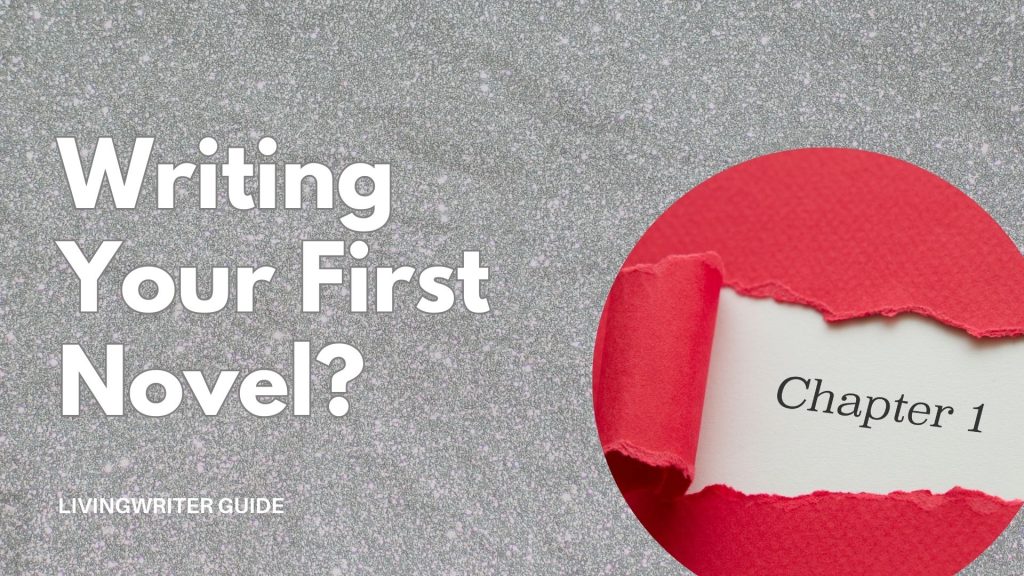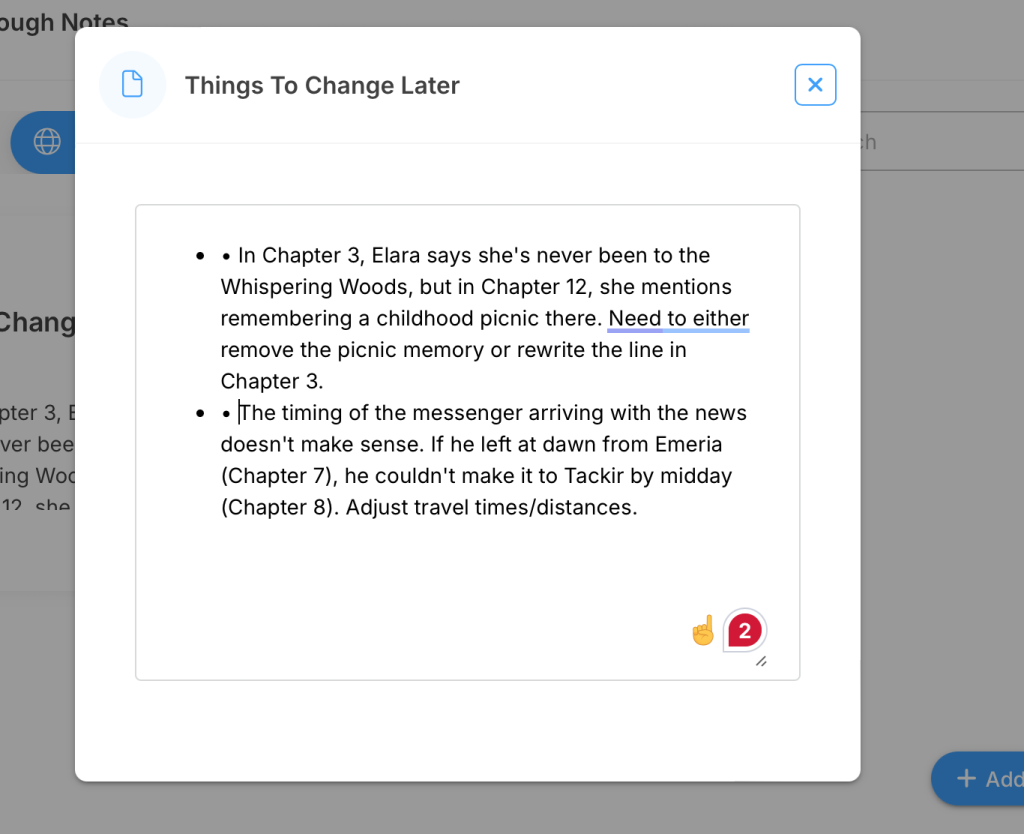Writing Your First Novel – 7 Key Tips To Know

Writing a novel is truly one of those things you need experience with. You can read guides on How To Write A Novel or Novel Pacing and get technical advice, which is a must for a good book. However, nothing beats hands-on experience. That said, it doesn’t always have to be your hands-on experience. Here are seven tips you should know when writing your first novel, courtesy of those who came before you.
Table of Contents
7 Tips For Writing Your First Novel
Some are a little technical in terms of application, but these tips aren’t lectures on the essential elements of fiction. Instead, they’re short, sweet, practical “tweaks” to them I wish I would have known sooner. So, without further ado, let’s get right in.
1. Characters Over Plot
It’s easy to treat the plot as king of the craft. People will tell you you need a firm grasp on your plot from the get-go. And you do. It helps to ensure that you have a story (beginning, middle, and end) that makes sense.
Right along with this comes your story structure and pacing. When we know where we’re starting and where we want to go, it’s easier to get there and correct if we get lost. But even the best plots can’t make a novel all alone.
You May Also Like: How To Write Unique Characters With LivingWriter
If you’re interested in writing, chances are, you’ve got tons of ideas… And if you’re reading this, zero novels. This is because, most times, the plot alone isn’t enough motivation to write your book to completion.
So, what’s a writer to do? Love your characters! If you do, you’ll get through your plot. In my experience, motivation to write comes from characters. When you are stoked about what happens to your characters, you fall in love with the journey instead of just the destinations.
I have an in-depth guide on how to write better characters that lead to better plots. Some of which I’ll cover directly below.
2. Don’t Control Your Characters
My “Better Characters” article covers character motivation and how important it is. In a nutshell, a character’s “want” is their external goal or desire. Their “need” is their internal, often unconscious, desire for growth or fulfillment.
The conflict between these should influence their actions, thoughts, and overall arc. Allowing them to choose and react to situations based on their established personalities is a phenomenal way to serve the plot.
So, think of this second tip as actionable advice on putting tip number one into practice. Be excited about your characters. Use that excitement to write. Then, let their motivations, flaws, and strengths dictate their actions.
3. You Don’t Have To Write Linearly
If you’re excited about a particular scene or section of the story, don’t wait to write it, even if it’s later in the book than where you are currently. This is great motivation and helps ensure the later scenes mesh with the early part of the story.
As mentioned above, you do want some structure. But by all means, feel free to jump around on the map you’ve made. Not only is it liberating, but it can also be helpful to write earlier sections with some other key things already on paper.
4. Don’t Edit As You Write
When I say edit, I mean major stuff or significant sections of the story. By all means, fix grammar and spelling when you spot it. But let’s say you’re 300 pages in and realize, “Wait a minute… That part in chapter two doesn’t make sense anymore.”
Good catch. Do not stop what you’re doing and go rewrite chapter two. Until you get to the end of your first draft, things are liable to change. If you go and rewrite chapter two based on what you said on page 300… And then decide to change that section later, guess what? Now, the new chapter two needs another rewrite. You get the point.
Instead, create a “things to change later” folder, and when you realize something is off earlier in the story, add it and then take care of everything in revisions. This will save you a lot of grief when writing your first novel.
And pro tip: you can create this “things to change later” section directly in your LivingWriter manuscript via Global Notes and cut out the need for an external file or folder.

5. Set Weekly Goals
Writing every day is one of the best ways to turn your craft into a habit that just do. This is backed up by science on forming habits, and I have made Beginner Writing Routines that include daily writing. So, they are worth trying. Usually, I recommend doing at least 15 minutes a day.
However, being consistent in the long term is the goal, so I highly suggest you make a weekly schedule that can trump your daily one. For example, set a weekly goal of about 90 minutes. This allows you a bit more flexibility without feeling like you’re getting off track.
If you make time for the 15 minutes day, you’ll hit that 90 minutes. But if you have a busy week and do all 90 minutes in one day, that tracks too. You don’t have to have a strict schedule, but you have to keep moving – A weekly schedule helps you expect the unexpected and stay writing.
6. Writing Vs. Other Things
This tip kinda goes hand in hand with the schedule/goal tip above. This one relates to what you do with the time you’re “writing.” Writing is putting words down, of course. But in the context of “sitting down to write” thinking is writing, reading and reading, research, etc, is all also “writing” so long as it’s productive.
Put another way, writing is more than word count. So, if you sit down and make progress that isn’t necessarily words on the page, take it. It counts. But I did mention, “so long as it’s productive.” So, here are some tips to avoid things that are better categorized as distractions.
- Designate a dedicated, comfortable workspace to signal your brain it’s time to work.
- Silence digital distractions by turning off notifications and, ideally, keeping your phone out of reach.
- Approach each session with the intention of making meaningful progress rather than simply filling time or word goals.
7. Use Your Knowledge
Adding things that you’re knowledgeable or passionate about is a game changer. It injects authenticity, detail, and enthusiasm into your work and really makes it more engaging. You can incorporate something you like or know about into the plot, peppering it into a character, or even through a repeated theme, and it’s really fun.
Just make sure it serves the story somehow and that you use specific details sparingly. Don’t be excessive or overshadow the writing. While this is probably the easiest tip on the list and isn’t hard to do, I have some nice technical advice, thanks to Ernest Hemingway.
His “Iceberg Theory is helpful for many reasons and can be applied to this. Basically, the idea is that if you have a deep understanding of something, you’ll effectively use a few specific details and leave most unsaid.

What you say is the “tip of the iceberg,” and what you don’t is the mass under the water that the reader will assume is there without seeing it. For example, you don’t have to get into the wide range of problems that can cause a vehicle to misfire to tell us your character knows his way around a car.
“Could be anything from a spark plug to the ECU…” would work. And it’s such a brief mention that the reader will be just fine if they don’t know what an ECU is.
Conclusion
There you have it, my friends – My seven tips that you should know when writing your first novel. I hope you find them as helpful as I did. Now, the only thing left to do is get out there and get to writing. So, until next time, take care of yourselves.